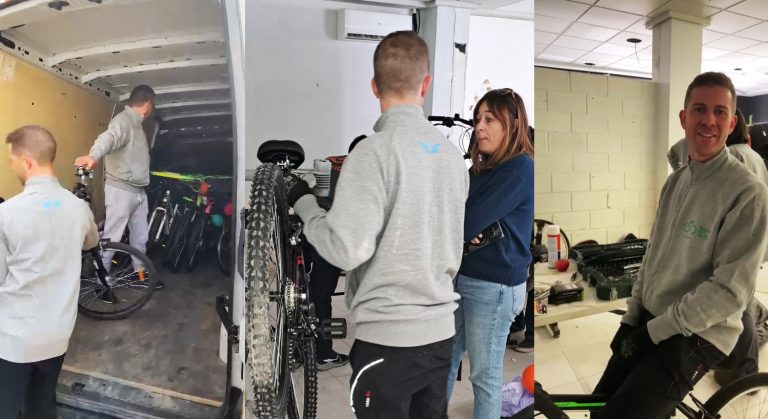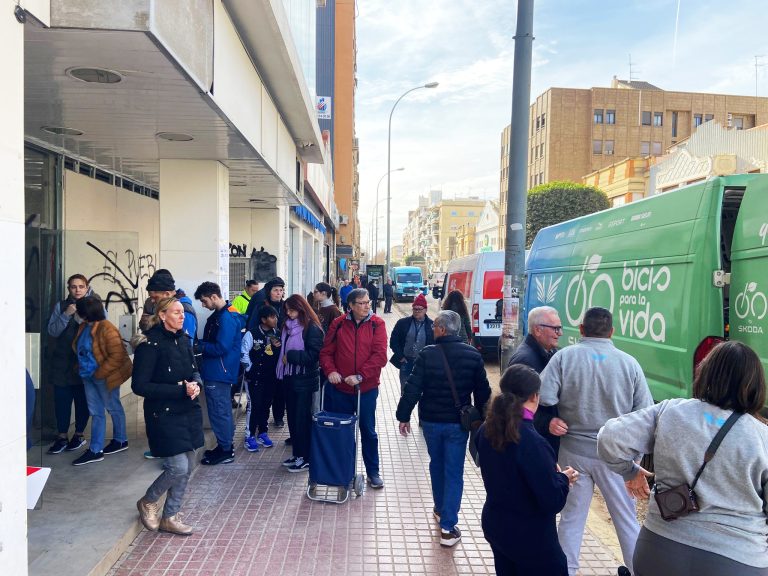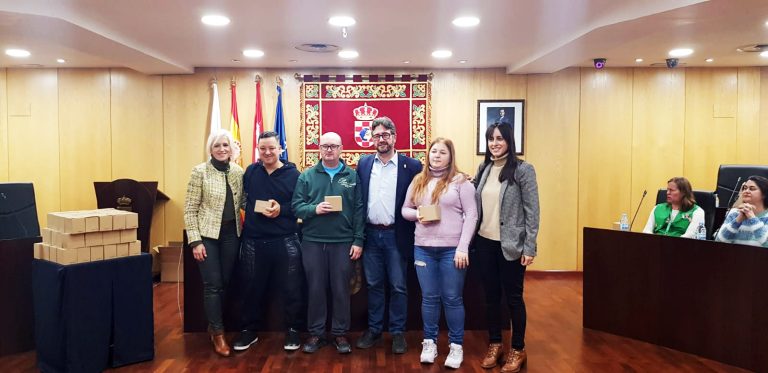#BicisParaLaVidaBySKODA #EnBici
Mechanics classes and recreational pedalling among young students of the ESO
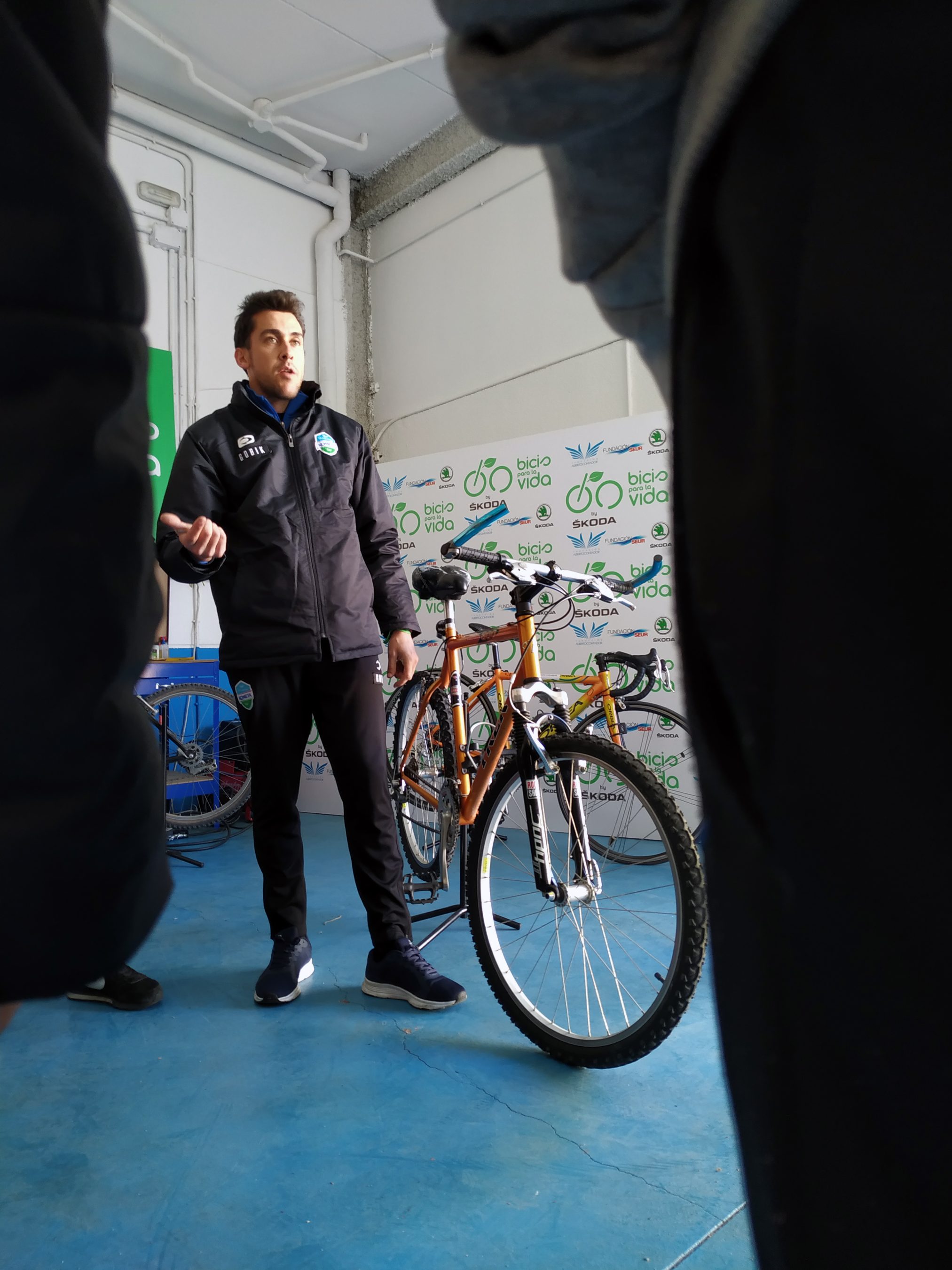
Eva and Paula, fictitious names, exchange impressions. “I liked riding my bike more,” says one of them. “The practice of mechanics has been very interesting”. “Well, I liked both of them”, she adds to the conversation with Ainhoa, who confesses that she tends to practice cycling from time to time. A few meters away, Ramon last with a key allen some of the adjustments he has asked, after a short talk presentation, the teacher. “What’s all right now,” he says, pointing to the handlebars he has just tightened, he believes, in an immovable way.
But the teacher today is not Laureano Nonídez, who teaches the class of Technology and is now one more among the audience. The professor is Armando Ortego, responsible for the Service Course of all the sports structures of the Alberto Contador Foundation, who shows them some tricks and instructs them in some particularities that they must always take into account when they face a bicycle, whether mountain or road. To Ramon’s surprise, Ortego is able to move the handlebars: it was not as well secured as it might seem a priori.
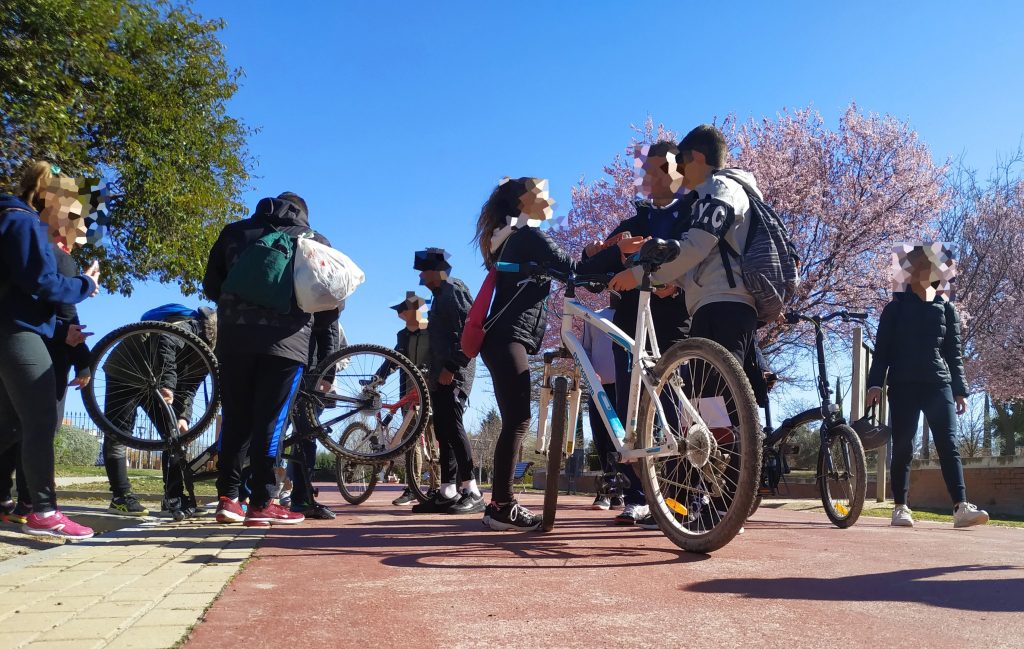
Within the framework of a collaboration agreement between the Alberto Contador Foundation and the Sagrada Familia of Urgel School from Vallecas, Madrid, a group of second year students from the E.S.O. travelled this Thursday to the Madrid town of Pinto to attend a practical bicycle repair workshop and also, guided by the Physical Education teacher Diego Olmedo, face a small outing by bicycle with some of the saddles already repaired that await a new destination and a new life. The first one, in the facilities where the Bicis para la Vida by ŠKODA mounts are collected and guarded. The second, with its epicenter in the Juan Carlos I Park and nearby roads.
Paco Romero, head of Bicis para la Vida by ŠKODA, likes to say that this is a 360 degree project. A multifaceted initiative that goes far beyond the collection of obsolete bicycles and their distribution among disadvantaged groups or communities or at risk of exclusion. It can also be an educational medium, a tool to awaken new sensibilities; a stimulus to structure different fields and interconnect them in order to promote a better tomorrow. An ambitious goal, but also a sensible and possible one.
Hand in hand with the Sagrada Familia de Urgel School and its educational programme of the course linked to mechanisms, the repair and maintenance of bicycles has become a subject of study with theory and practice. And a supportive background: the educational centre catches bicycles that the students themselves will repair and deliver in the coming months to Bicis para la Vida by ŠKODA. This week’s has been the first contingent of students who have faced the presential experience of technology practices and a physical education activity in another extracurricular environment; in the next fifteen days the experience will be repeated with other classes involved.


